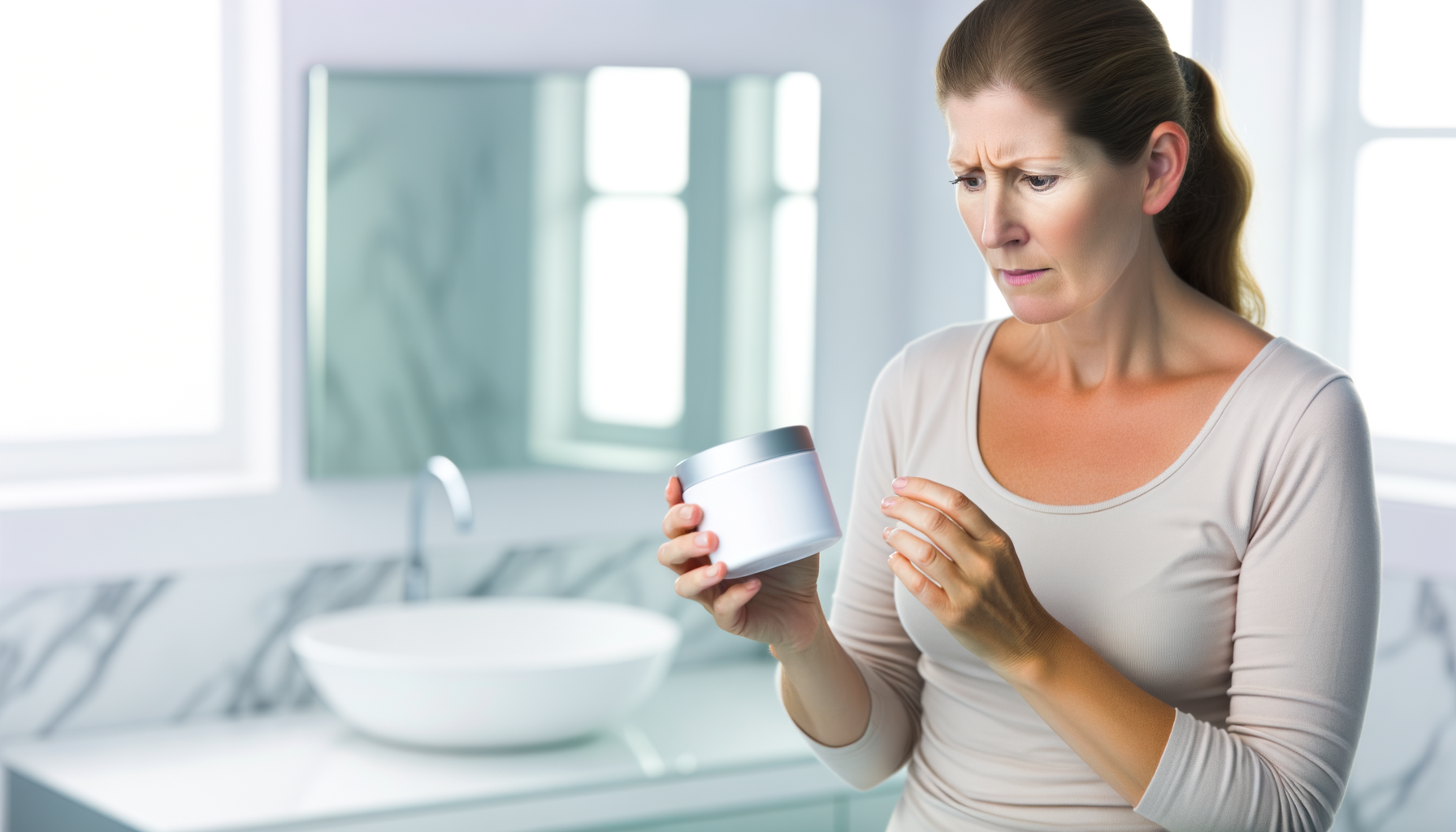Frequent Urination as a Menopausal Symptom
Menopause marks a significant transition in a woman’s life, one that often brings a host of physical changes and symptoms. Among these, frequent urination emerges as a common yet seldom-discussed issue. As the body undergoes hormonal shifts, particularly the decline in estrogen, the urinary tract and bladder are affected. This can lead to an increased urgency to urinate, a condition that can disrupt daily activities and sleep patterns. Understanding this symptom within the context of menopause is crucial for managing it effectively and minimizing its impact on quality of life.
Defining Frequent Urination: How Much is Too Much?
While individual urinary frequencies vary, peeing 6-8 times in 24 hours is generally considered normal. Exceeding this range may indicate frequent urination, also known as polyuria. It’s important to distinguish between an actual need to urinate and the sensation of urgency, which may not always result in significant urine output. Recognizing the difference is key to identifying when frequent urination is becoming an issue that requires attention.
The Impact of Menopause on Daily Life
The menopausal transition can significantly affect a woman’s daily life, with symptoms like frequent urination causing potential embarrassment, anxiety, and sleep disturbances. The need to plan activities around bathroom access, the fear of incontinence, and the disruption of sleep due to nocturia (nighttime urination) are just a few ways frequent urination can complicate matters. Moreover, the emotional toll of coping with these changes can exacerbate stress and affect overall well-being. It’s essential for women to recognize these challenges and seek support and management strategies to maintain their lifestyle and confidence through menopause.
The Role of Estrogen in Urinary Function
Estrogen’s Influence on Bladder Health
Estrogen plays a crucial role in maintaining the health and function of the bladder. The hormone’s influence extends to the bladder’s supportive tissues, mucosal lining, and the urethra. Estrogen receptors are abundant in the lower urinary tract, particularly in the urethra and the trigone area of the bladder, suggesting that estrogen is integral to the structural integrity and function of these tissues. The presence of estrogen contributes to tissue elasticity, blood flow, and the maintenance of a protective mucosal layer, all of which are essential for normal urinary function.
How Menopause Affects Estrogen Levels and Urination
During menopause, the body’s production of estrogen diminishes significantly, leading to a range of genitourinary symptoms collectively known as the Genitourinary Syndrome of Menopause (GSM). This decline in estrogen levels can result in urogenital atrophy, characterized by thinning of the urethral and vaginal tissues, decreased blood flow, and a compromised mucosal layer. These changes can lead to increased urinary frequency, urgency, and a heightened risk of urinary tract infections (UTIs). Additionally, the loss of estrogen’s supportive role in the pelvic floor muscles may contribute to stress urinary incontinence (SUI), where physical exertion or activities such as coughing and sneezing can cause involuntary urine leakage.
Nighttime Urination and Menopause
Nocturia, or nighttime urination, is a common complaint among menopausal women. The decrease in estrogen levels can lead to a reduction in bladder capacity and an increase in bladder irritability, resulting in the need to urinate more frequently during the night. This symptom not only disrupts sleep patterns but can also impact the overall quality of life. The management of nocturia often involves a combination of lifestyle modifications, pelvic floor muscle exercises, and in some cases, local estrogen therapy to improve the health of the urogenital tissues.
In conclusion, estrogen plays a vital role in the health and function of the urinary system. The hormonal changes that occur during menopause can lead to a range of urinary symptoms that affect a woman’s quality of life. Understanding the connection between estrogen and urinary function is key to developing effective management strategies for these symptoms.
Common Causes of Increased Urination During Menopause
Physiological Factors Contributing to Frequent Urination
As women enter menopause, the body undergoes significant hormonal changes that can impact urinary function. A primary physiological factor is the decline in estrogen levels. Estrogen plays a crucial role in maintaining the strength and health of the bladder and urethra. With lower estrogen levels, these tissues may weaken, leading to increased frequency of urination. Additionally, menopause can lead to urogenital atrophy, which involves the thinning of the tissues of the urinary tract and vagina, further exacerbating urinary symptoms.
Another physiological change is the potential for pelvic organ prolapse, where pelvic organs, including the bladder, can descend due to weakened support structures. This condition can cause sensations of urgency and increased frequency. Furthermore, the natural aging process can affect bladder capacity and the ability to control urination, contributing to more frequent bathroom visits.
Lifestyle and Dietary Influences
Lifestyle choices and dietary habits can also influence urinary frequency during menopause. The consumption of diuretics such as caffeine and alcohol can increase urine production, leading to more frequent trips to the restroom. Similarly, foods and beverages that are known bladder irritants, including spicy foods, citrus fruits, and carbonated drinks, can exacerbate the sensation of urgency.
Fluid intake patterns, particularly before bedtime, can affect nocturia, the need to urinate during the night. Adjusting fluid consumption and avoiding diuretics in the evening can help mitigate this issue. Additionally, maintaining a healthy weight is important, as excess weight can place additional pressure on the bladder, increasing the likelihood of frequent urination.
Medical Conditions That May Cause Frequent Urination
Several medical conditions can cause or contribute to increased urination during menopause. Urinary tract infections (UTIs) are more common as estrogen levels drop, leading to changes in the urinary tract that make it more susceptible to infection. Symptoms of a UTI include urgency, discomfort, and frequent urination.
Overactive bladder (OAB) is another condition characterized by a sudden, intense urge to urinate, often accompanied by incontinence. Interstitial cystitis, also known as painful bladder syndrome, can cause chronic pelvic pain and frequent urination. Diabetes, which may develop or become more difficult to manage during menopause, can also lead to polyuria, the production of abnormally large volumes of dilute urine.
It is essential for women experiencing frequent urination during menopause to consult with a healthcare provider to rule out these and other medical conditions, such as bladder stones or neurological disorders, which may require specific treatments.
In conclusion, frequent urination during menopause can be attributed to a combination of physiological changes, lifestyle factors, and medical conditions. Understanding these causes is the first step toward managing symptoms and improving quality of life during this transitional period.
Natural Management Strategies for Frequent Urination
Adjusting Fluid Intake
One of the simplest ways to manage frequent urination is to adjust your fluid intake. While it’s essential to stay hydrated, too much fluid can exacerbate bladder issues, especially before bedtime. Aim to consume the majority of your fluids earlier in the day and reduce intake a few hours before you plan to sleep. Be mindful of beverages that act as diuretics, such as those containing caffeine or alcohol, as they can increase the frequency of urination. Additionally, consider the fluid content in foods like soups, which contribute to your overall intake.
Monitoring the Effects of Diuretics
Diuretics, whether in the form of medication, food, or drink, can lead to increased urination. It’s important to be aware of the diuretic properties of substances like alcohol, caffeine, and certain medications. If you’re experiencing frequent urination, evaluate your intake of these diuretics and discuss with your healthcare provider whether any medications you’re taking could be contributing to the issue.
Identifying and Addressing Underlying Health Issues
Underlying health conditions can often be the root cause of frequent urination. Conditions such as urinary tract infections, diabetes, and overactive bladder can all lead to an increased need to urinate. If you suspect an underlying health issue, it’s crucial to seek medical advice for proper diagnosis and treatment.
Stress Management Techniques
Stress and anxiety can also play a role in frequent urination. Engaging in stress management techniques such as deep breathing, meditation, or yoga can help alleviate the symptoms. By reducing stress, you may find that the frequency of your urge to urinate decreases as well.
Strengthening Pelvic Floor Muscles Through Exercise
Weak pelvic floor muscles can contribute to frequent urination. Exercises such as Kegels can strengthen these muscles and improve bladder control. To perform Kegel exercises, squeeze the muscles you would use to stop the flow of urine, hold for three seconds, and then relax for three seconds. Repeat this process several times a day, gradually building up the strength and endurance of your pelvic floor muscles.
By incorporating these natural management strategies, you can take proactive steps to reduce the impact of frequent urination on your daily life. Remember, if lifestyle adjustments do not alleviate your symptoms, it’s important to consult with a healthcare professional for further evaluation and potential treatment options.
When to Seek Medical Advice
Recognizing When Lifestyle Changes Aren’t Enough
While many women find that lifestyle adjustments can help manage the symptoms of frequent urination during menopause, there comes a point when these changes may no longer suffice. It’s essential to recognize when your efforts at home are not yielding the desired results. If you’ve tried reducing your intake of diuretics like caffeine and alcohol, adjusted your fluid intake, and engaged in pelvic floor exercises without significant improvement, it might be time to consider seeking medical advice. Additionally, if frequent urination is severely disrupting your sleep, daily activities, or causing emotional distress, professional evaluation is warranted.
Symptoms That Warrant Professional Medical Evaluation
While frequent urination can be a common symptom of menopause, certain signs should prompt you to seek immediate medical attention. These include:
- Painful urination: If urinating causes pain or burning sensations, it could indicate a urinary tract infection or other conditions.
- Persistent urgency: Feeling a constant need to urinate even after emptying your bladder.
- Changes in urine appearance: Cloudy, bloody, or unusually smelly urine can be signs of infection or other underlying issues.
- Abdominal or back pain: Pain in these areas, especially if severe, could be related to kidney or bladder problems.
- Fever, chills, or nausea: These systemic symptoms, in conjunction with urinary issues, may indicate an infection.
- Unusual vaginal discharge: Any new or abnormal discharge should be evaluated by a healthcare provider.
If you experience any of these symptoms, or if you notice a sudden change in your urinary habits, it’s crucial to consult with a healthcare professional. They can conduct a thorough evaluation, which may include urine tests, blood tests, and possibly imaging studies, to determine the cause of your symptoms and recommend appropriate treatment.
Remember, while menopause is a natural phase of life, you do not have to endure discomfort or pain that comes with it. Seeking medical advice can lead to effective treatments that improve your quality of life. Whether it’s through medication, hormone therapy, or other interventions, your healthcare provider can help you manage your symptoms and regain control over your bladder health.

From unhappy, dry, and sandpaper to silky, smooth and feeling good. That’s Cleo. Cleo is a 100% natural labial balm to moisture and soothe “your other lips”. Cleo is chemical-free, water-free, pH optimized and helps maintain and restore your delicate labial skin’s natural flora. Ideal for daily use or as needed. Get the most silky, lovable lips ever.
Preventive Measures and Early Detection
Routine Health Screenings and Menopause
As women approach menopause, the body undergoes significant hormonal changes that can affect various aspects of health, including urinary function. Routine health screenings become increasingly important during this time to monitor changes and address any emerging health concerns promptly. Regular visits to a healthcare provider can help in the early detection of conditions that may contribute to frequent urination, such as urinary tract infections (UTIs), overactive bladder (OAB), or other urinary disorders.
Healthcare professionals may recommend specific tests to evaluate bladder health, including urine analysis, bladder scans, or cystoscopy. Additionally, screenings for diabetes, a condition that can cause polyuria, should be part of routine check-ups, as high blood sugar levels can lead to increased urination. By staying on top of these health screenings, women can identify and manage menopausal symptoms, including frequent urination, more effectively.
Proactive Lifestyle Adjustments to Mitigate Symptoms
Proactive lifestyle adjustments can play a crucial role in managing frequent urination during menopause. Women can take several steps to mitigate symptoms and improve their quality of life. These include:
- Maintaining a healthy weight: Excess weight can put additional pressure on the bladder, exacerbating symptoms of frequent urination. A balanced diet and regular exercise can help in achieving and maintaining a healthy weight.
- Limiting bladder irritants: Certain foods and beverages can irritate the bladder and increase the frequency of urination. Reducing the intake of caffeine, alcohol, artificial sweeteners, and acidic foods may provide relief.
- Staying hydrated: While it may seem counterintuitive, adequate hydration is essential for bladder health. Drinking enough water throughout the day can help prevent UTIs and ensure the urinary system functions properly.
- Timed voiding and bladder training: Establishing a schedule for bathroom visits can help train the bladder to hold urine for longer periods. Gradually extending the time between trips to the bathroom can improve bladder control.
- Pelvic floor exercises: Regularly performing pelvic floor exercises, such as Kegel exercises, can strengthen the muscles that support the bladder and improve urinary control.
By incorporating these proactive measures into their daily routine, women can often reduce the frequency of urination and manage other menopausal symptoms more effectively.
It is important to note that while lifestyle adjustments can be beneficial, they should complement, not replace, medical advice and treatment plans provided by healthcare professionals. Women experiencing frequent urination or other menopausal symptoms should consult with their doctor to develop a comprehensive approach to managing their health during this transitional period.

Popular Read
Conclusion: Living Well with Menopause
Throughout this article, we have explored the multifaceted relationship between menopause and frequent urination. It’s clear that the hormonal changes during menopause, particularly the decline in estrogen levels, can significantly impact bladder health and function. Frequent urination, including the bothersome nighttime visits to the bathroom, can disrupt daily life and sleep patterns, contributing to a decrease in overall quality of life.
However, understanding the physiological factors contributing to frequent urination, alongside lifestyle and dietary influences, empowers women to take proactive steps in managing this symptom. Adjusting fluid intake, being mindful of diuretics, and engaging in pelvic floor exercises are all strategies that can mitigate the effects of frequent urination. Moreover, recognizing when lifestyle changes are insufficient and seeking medical advice is crucial for addressing underlying health issues that may exacerbate urinary symptoms.
Empowering Women to Navigate Menopausal Changes Confidently
Menopause is a natural transition in a woman’s life, and with the right knowledge and tools, it can be navigated with confidence. Empowerment comes from understanding the changes occurring within the body and recognizing the power of preventive measures and early detection. Routine health screenings, proactive lifestyle adjustments, and open communication with healthcare providers are all essential components of living well with menopause.
Women should feel encouraged to discuss their symptoms openly and seek support from medical professionals, support groups, and educational resources. By doing so, they can better manage symptoms like frequent urination and maintain a high quality of life. The key takeaway is that while menopause may present challenges, it also offers an opportunity for women to prioritize their health and well-being.
In conclusion, managing frequent urination effectively requires a combination of self-care practices, medical interventions when necessary, and a positive outlook on the menopausal journey. By summarizing the key points on managing frequent urination and empowering women with knowledge and confidence, we aim to support them in embracing this new phase of life with optimism and good health.


















